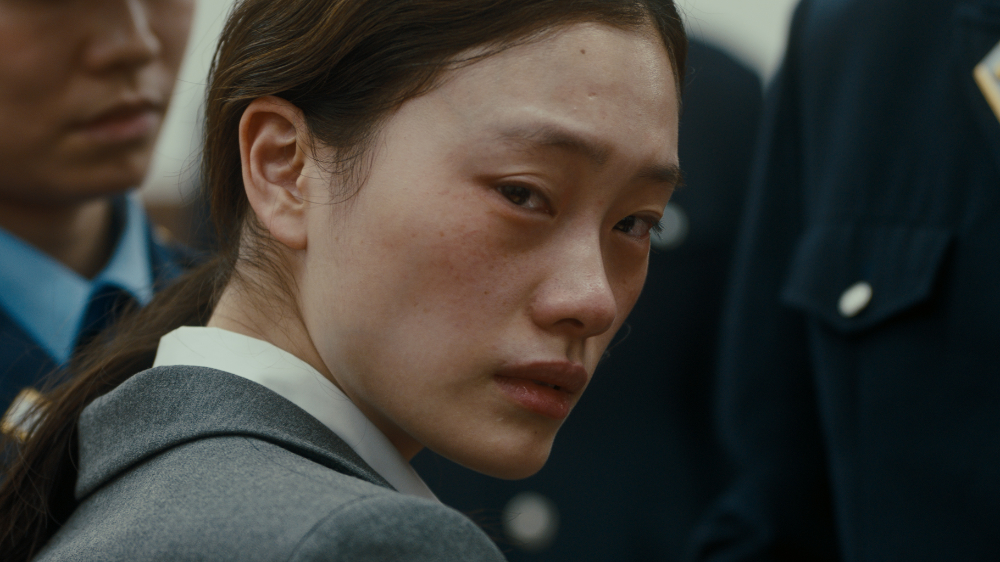Yesterday, South Korea's film industry people decided to boycott this year's Busan International Film Festival (BIFF), as the sponsoring city keeps “denying” the festival's autonomy.
A task force composed of nine industry associations, including the Korean Film Producers' Association, Directors' Guild of Korea and the Federation of Korea Movie Workers' Union, said they had polled their members for a week from April 1 and more than 90 percent of the respondents voted in favor of the boycott.
It marks the first time in 10 years that the local film industry openly voiced its anger over the BIFF, according to the task force. In 2006, industry members took to the streets to protest the government's plan to scale down the quota for screening domestic films.
The envisioned collective action added greater uncertainty to the future of Asia's largest film festival, which celebrated its 20th anniversary last year. This year's film festival is slated for Oct. 6-15.
Let us take things from the beginning though. The battle begun on October 2014, when Busan's mayor, and ex officio chairman of the festival, Suh Byung-soo found a documentary the festival screened objectionable and requested its removal from the line-up. The documentary “The Truth Shall Not Sink with Sewol,” also known as “Diving Bell,” criticized the central government's rescue efforts during the Sewol ferry disaster that claimed more than 300 lives in April 2014. BIFF director Lee Yong-kwan however, screened the film despite his protests. The outcome of the mayor's frustration was that next year the festival's budget was cut in half, (the half that the city of Busan provides) and last February, the festival director Lee Yong-kwan lost his job, with the city government citing “problems” found in the city's recent audit of the festival organization. At that time, Lee had one year left before his second three-year term expired.
The move prompted protests from some in the local film industry who took the city's demand to be a retaliatory measure against the film festival's screening of a controversial film despite the city's request not to do so. “BIFF is not a property of Busan city government. It is true that the government's financial support to the festival is a part of the reason for the success of the festival, but the festival is entitled to make decisions on how to run it [autonomously] without any external interference,” said the committee earlier in March.
The feud deepened recently as the Busan city government filed a complaint with prosecutors against Lee and two committee officials on accounting fraud charges following a probe by the state inspector into them in September.
The dispute appeared to die down after Busan Mayor Suh Byung-soo offered to resign as the festival's organizing committee chief amid growing pressure to solve the ongoing feud.
The two sides pitted themselves against each other again after Lee appointed 68 new members to the festival's advisory committee shortly ahead of the organizing committee's regular full session, in an attempt to gain majority votes in amending BIFF's bylaws. The advisory committee members have the right to elect the festival's new executive director. The committee urged for the Busan Metropolitan Government's cooperation in amending BIFF's bylaws so as to guarantee the festival's artistic freedom and operational autonomy from the city, which is currently the festival's largest financial sponsor, and had also asked that Busan withdraw a preliminary injunction filed to nullify the appointment of the new advisory committee members. “Busan Metropolitan Government has not complied with any of our requests,” the emergency committee said. “It is regretful that we have to take such drastic measures just six months before the festival, but we refuse to attend if BIFF's freedom … is not guaranteed. We hope the Busan Metropolitan Government will uphold the principle of ‘supporting without intervening.'”
The Busan city government sought a court injunction to keep the appointment from coming into force, which the Busan District Court accepted last week.
The boycott marks he largest collective action by Korean filmmakers in a decade. “This is the first time in 10 years that the [Korean] film industry has spoken out in unison since opposing the screen quota policy in 2006. This demonstrates how freedom of expression and the [Busan] film festival's independence are grave matters for the Korean film industry,” said Korean Film Group's Emergency Committee for Defending BIFF's Independence, which includes producers, directors, writers, cinematographers and marketers.
For the time being, BIFF is still going to proceed with the necessary preparations, which includes inviting foreign filmmakers, its public relations representative said Monday. A budget of 12.3 billion won ($10.7 million) has already been allotted to the festival.
Sources close to the festival, now say that close to the likelihood of its 21th edition happening as normal in October has dropped to just 50%.
“The world will witness the empty red carpet for the first time in 20 years of BIFF's history, and the audience from all over the world will stop coming to Busan for the festival any more,” the Emergency Committee said in its statement.
sources: inquirer.net, yonhapnews, the hollywood reporter, variety















